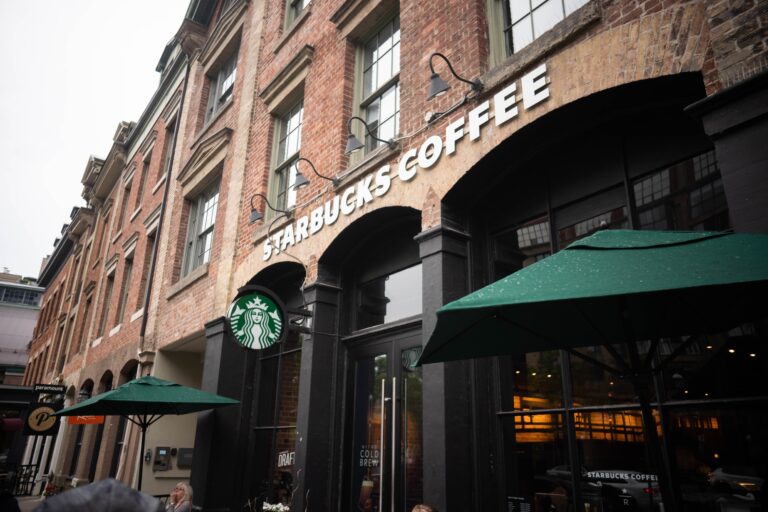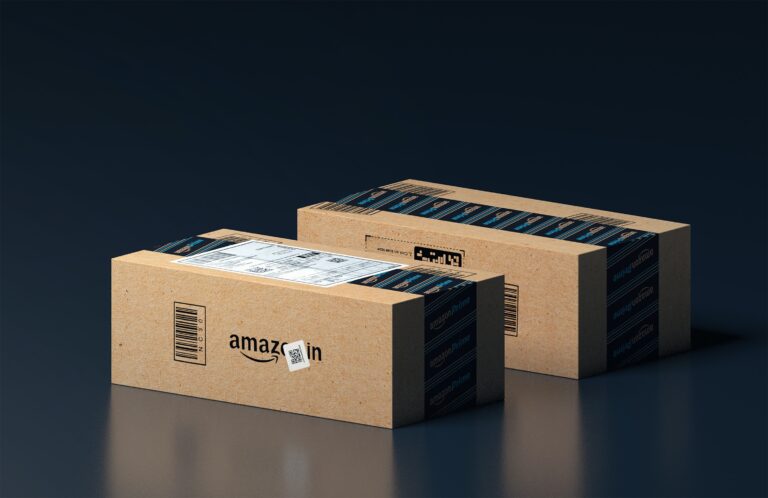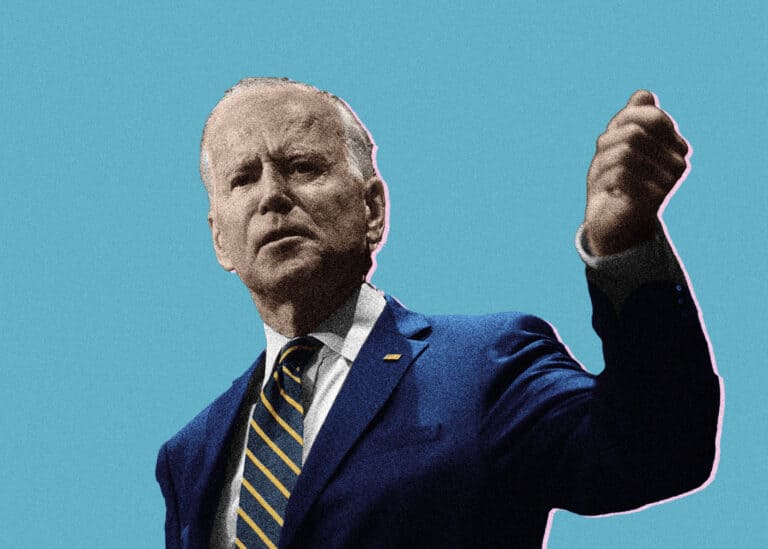
Andrew Strom is a union lawyer based in New York City. He is also an adjunct professor at Brooklyn Law School.
Workers at Amazon’s JFK8 warehouse on Staten Island voted by a margin of 2,654 to 2,131 in favor of unionizing with the independent Amazon Labor Union (ALU). If our labor laws worked, Amazon would now be required to bargain with ALU. But, instead of accepting the election results, Amazon is doing its best Donald Trump impression, claiming that the election was somehow not “free and fair.” Of course, while Trump is still whining about the 2020 election, he was powerless to stop Joe Biden from being sworn in on January 20, 2021. Amazon’s objections to ALU’s victory are about as substantive as Trump’s objections to Biden’s victory. Yet, if public pressure does not force Amazon to back down, the objections will be sufficient to delay bargaining for at least two years.
Amazon filed 25 separate objections, as if it could make up in volume what the objections lack in substance. Several of the objections fall into the category of “ALU made it hard for us to run a campaign from the standard anti-union playbook.” Consider Objection 15: “The ALU engaged in repeated and deliberate attempts to interfere with and ‘shut down’ Amazon’s small group meetings, solicited employees during Amazon’s educational meetings in violation of Amazon’s policies, and destroyed Amazon’s campaign materials.” In other words, when Amazon forced workers to attend anti-union meetings, ALU’s supporters had the temerity to ask questions and talk to their fellow workers. And, when Amazon handed out anti-union propaganda, some workers chose to discard it rather than take it home to study it.
Another objection complained that ALU told workers that “it would not charge dues unless and until it secured higher wages in contract negotiations with Amazon.” According to Amazon, this interfered with the election because it “deprived Amazon of the ability to effectively respond and denied employees the opportunity to assess the credibility of the promise.” In other words, Amazon wanted to run the standard “Dues, dues, dues” campaign, but it was flummoxed by ALU’s assurance to workers that they would pay dues only once they secured a wage increase. Three different objections mention that ALU has not yet filed the annual reports with the Department of Labor that are grist for the anti-union mill. Anti-union consultants typically pore through these reports. It’s almost amusing to think about partners at law firms with profits per partner of over $1 million trying to stoke outrage among workers at the six-figure salaries of union officers.
Several objections focus on alleged trespassing by ALU representatives. These objections highlight one of the ways the law empowers employers to undermine union organizing activity. Not only can an employer force workers to listen to its anti-union propaganda, but the employer can keep non-employee union organizers off its property. One advantage ALU had was that most of its organizers were Amazon employees, so they were able to gain access to the premises.
Amazon tried to claim that the NLRB unfairly assisted ALU’s efforts, but its complaints about the NLRB’s actions don’t amount to much. One complaint is that the NLRB waited too long to seek a preliminary injunction to reinstate a fired worker. Over a year before the election, the NLRB issued a complaint against Amazon, accusing it of firing a worker, Gerald Bryson, in retaliation for his union activity. The case went to trial before an Administrative Law Judge (ALJ), but briefs were just filed, and if the case follows ordinary timelines, it will likely be six months until the ALJ rules, then two years until the full Board issues its decision, and another two years before a circuit court enforces the Board’s order. The NLRB’s Regional Director properly realized that adhering to this timeline would mean that workers might “conclude that the Board cannot effectively protect their rights . . . to engage in protected concerted activities with coworkers to improve their terms and conditions of employment.” Amazon asserts that by seeking a preliminary injunction to reinstate Bryson, the Board improperly created the impression “that Amazon’s actions were worthy of an extraordinary remedy.” But, maybe the real problem is that Amazon can say with a straight face that it is “extraordinary” for the Board to seek a preliminary injunction to reinstate a fired worker while a case is pending rather than just sit back and wait five years for the case to run its course.
In addition to complaining about the preliminary injunction, Amazon objects that the NLRB gave ALU too much time to gather the signatures it needed to hold the election, and it alleges that ALU may not have even obtained the 30% showing required to hold an election. I have no idea what the underlying facts are here, but it would be absurd if this were a basis for overturning an election. The purpose of the showing of interest requirement is to gauge if there is enough support to warrant holding an election. Here, the election itself has answered that question resoundingly. Another overreaching objection asserts that an NLRB agent acted improperly when, in response to a worker’s complaints about Amazon’s actions during the campaign, the agent, “within earshot of voters, stated to the employee that that the employee could file unfair labor practice charges against Amazon.” I guess the problem here was letting workers know that Amazon is not above the law.
I’m not sure why Amazon’s lawyers decided to file so many different objections, but one reason is that there are no consequences for filing frivolous objections. Consider Objection 20: “The ALU deployed a light projector outside the JFK8 facility that projected mass messaging on the façade of the JFK8 building.” Among the messages were “Vote Yes,” “Be the First in History,” “They Fired Someone You Know,” and “ALU for the Win.” What made this objectionable? According to Amazon’s lawyers, the projections “suggested that Amazon supported the messaging.” I realize that Amazon has a history of underestimating the intelligence of its employees, but I doubt any worker was confused about which side Amazon was on.
Unless this becomes a public relations disaster, filing objections is a win-win for Amazon. First, there is the hope that even if they can’t convince the NLRB, they may draw a panel of sympathetic Trump appointees at the circuit court and convince the court to set aside the union victory. But, even if the legal arguments fail, Amazon still wins because merely by filing objections and refusing to bargain, it can force ALU to wait two years just to get to the bargaining table. And under current labor law, the only remedy for Amazon’s refusal to bargain is an order requiring it to bargain — there are no fines or penalties, and workers are not entitled to any compensation for the delay in getting to the bargaining table. ALU’s election victory was inspiring, but without a lot more pressure on Amazon, the workers at JFK8 will be waiting a long time for their union contract.










Daily News & Commentary
Start your day with our roundup of the latest labor developments. See all
February 2
Amazon announces layoffs; Trump picks BLS commissioner; DOL authorizes supplemental H-2B visas.
February 1
The moratorium blocking the Trump Administration from implementing Reductions in Force (RIFs) against federal workers expires, and workers throughout the country protest to defund ICE.
January 30
Multiple unions endorse a national general strike, and tech companies spend millions on ad campaigns for data centers.
January 29
Texas pauses H-1B hiring; NLRB General Counsel announces new procedures and priorities; Fourth Circuit rejects a teacher's challenge to pronoun policies.
January 28
Over 15,000 New York City nurses continue to strike with support from Mayor Mamdani; a judge grants a preliminary injunction that prevents DHS from ending family reunification parole programs for thousands of family members of U.S. citizens and green-card holders; and decisions in SDNY address whether employees may receive accommodations for telework due to potential exposure to COVID-19 when essential functions cannot be completed at home.
January 27
NYC's new delivery-app tipping law takes effect; 31,000 Kaiser Permanente nurses and healthcare workers go on strike; the NJ Appellate Division revives Atlantic City casino workers’ lawsuit challenging the state’s casino smoking exemption.